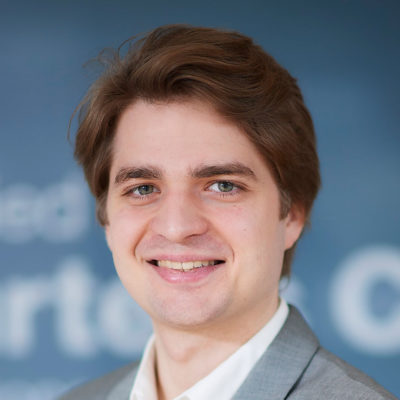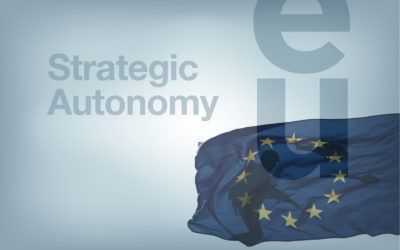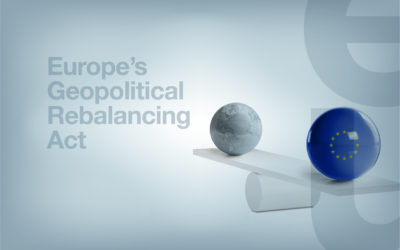A Forward-Looking State of the Union Speech Outines the EU’s Future
14 September 2023

The 2023 State of the European Union speech by Commission President Ursula von der Leyen was a return to typical form. As opposed to last year, where Russia’s war in Ukraine was truly the focal point, this address had all the hallmarks of a traditional State of the Union. However, it was also unique as, like President von der Leyen pointed out at the start of her speech, the European elections will take place in less than 300 days, making this the last State of the Union of her current term.
Therefore, the initial focus was very much on outlining all the achievements of her Commission since 2019, not just over the past year, ranging from a greater geopolitical role for Europe to the efforts spent on combating climate change, most important of which is the European Green Deal.
Rapidly though, and perhaps indicating her own ambition to run for a second term as the head of the European executive now that Berlin has blessed it, von der Leyen began outlining all the future objectives which the EU must focus on, both short and long term. This wasn’t necessarily to be expected given the political timeline, but this resulted in her address having a true sense of direction.
In line with recent posturing from global democracies on the matter of relations with China, von der Leyen struck the careful balance which the EU has aimed for, maintaining the EU was open for business, but unequivocally firm against unfair competition, taking aim at the massive subsidies Chinese companies rely on to then offer cheap goods in European markets. Specifically, von der Leyen took aim at the electric vehicle industry, announcing an anti-subsidy investigation into electric vehicles coming from China. De-risk, not decouple was the mantra which she employed to summarise the EU’s position towards the Asian giant.
Turning domestically, von der Leyen spoke of the importance of protecting the environment, but mentioned the crucial importance of working alongside the agricultural sector when doing so. This echoed the conversation around the Nature Restoration Law, which was voted by the European Parliament in early July despite opposition from the EPP Group, on account of the fact that it would risk harming farmer livelihoods.
Significantly, President von der Leyen also called for the inclusion of Bulgaria and Romania into the Schengen area, which drew long applause from the MEPs in the Plenary. On enlargement, she made a series of calls for a renewed push towards integrating new member states, emphasising her belief that all the programmes which the EU began building with 27 member states can be completed with more than 30 members, indirectly speaking to Georgia and Ukraine, among others.
However, von der Leyen made no firm commitment for accession of the countries, instead choosing to acknowledge the good work they have done towards reforming. This reflects the fraught political reality that further enlargement remains deeply unpopular in many parts of the EU, and will likely become the key policy field of the next College of Commissioners.
Von der Leyen chose to end her speech mentioning the call of history, having spoken of the inevitability of further enlargement and the importance of completing our Union, both through welcoming new members, and securing the fundamentals, chief of which are democracy and the rule of law. This was directed at both existing and potential member states, reminding us all that the European Union still has a lot of work to do getting its house in order.
On industrial policy, climate, enlargement, and in many other areas, the EU is at a critical junction. This speech was a balanced reminder that we must all be actively involved in these varied policy areas if we wish to secure the best future which our unique system is capable of delivering.
ENJOYING THIS CONTENT







